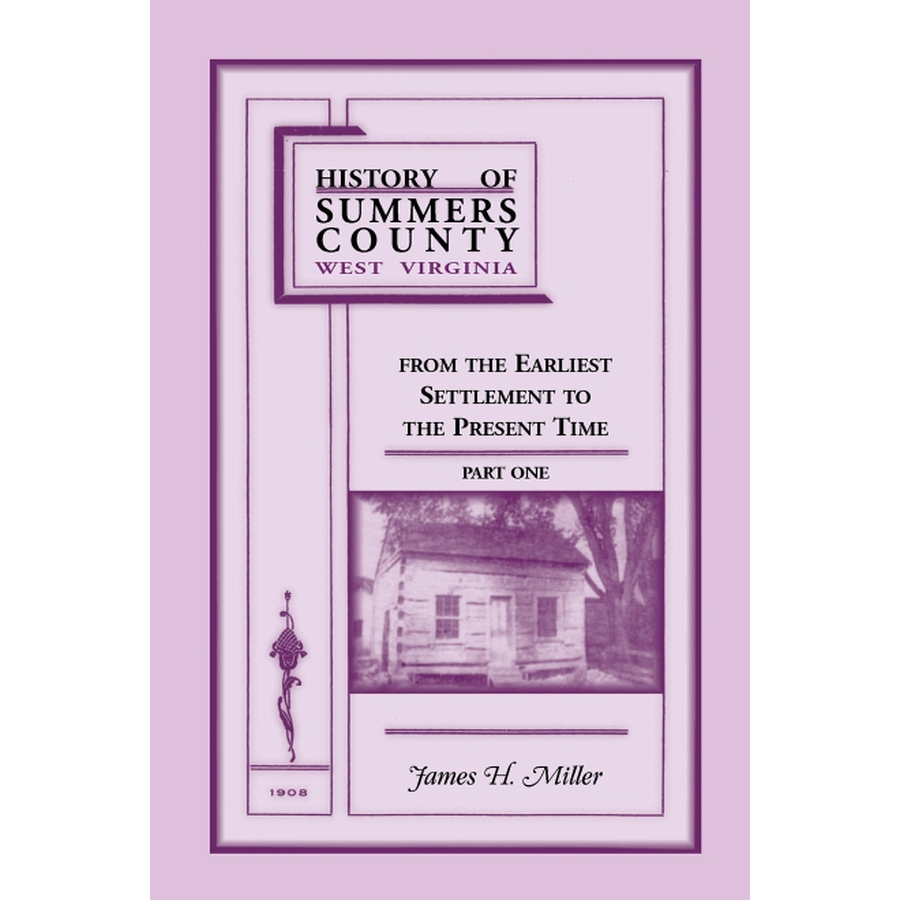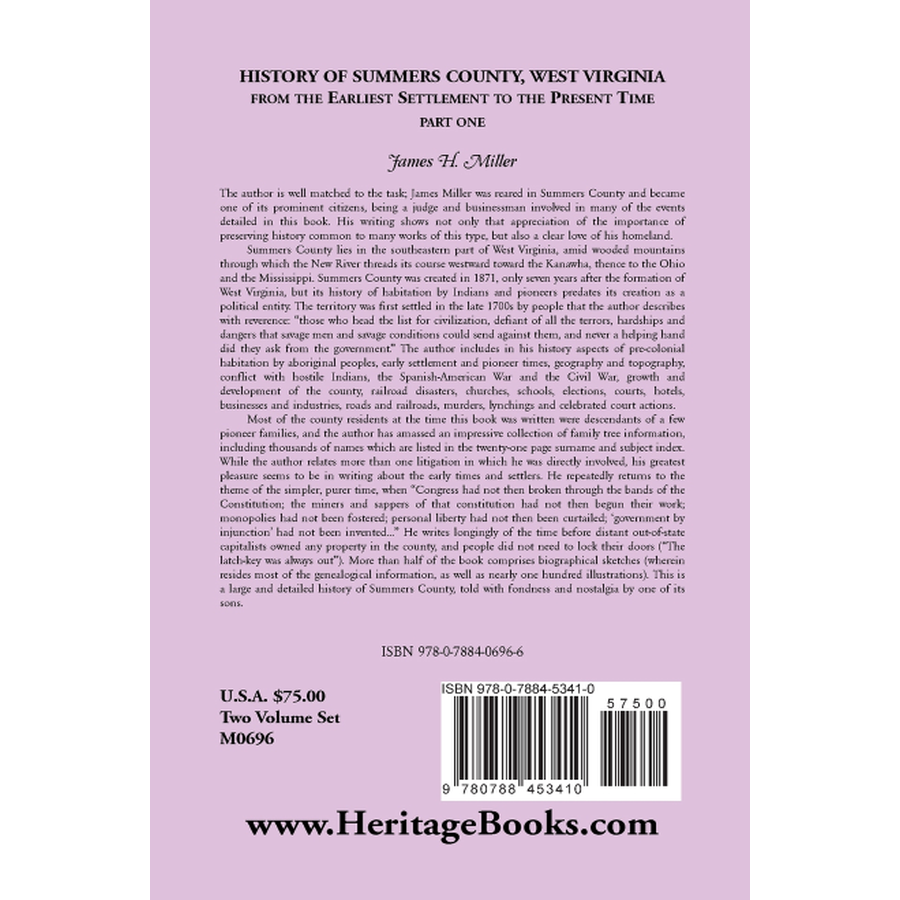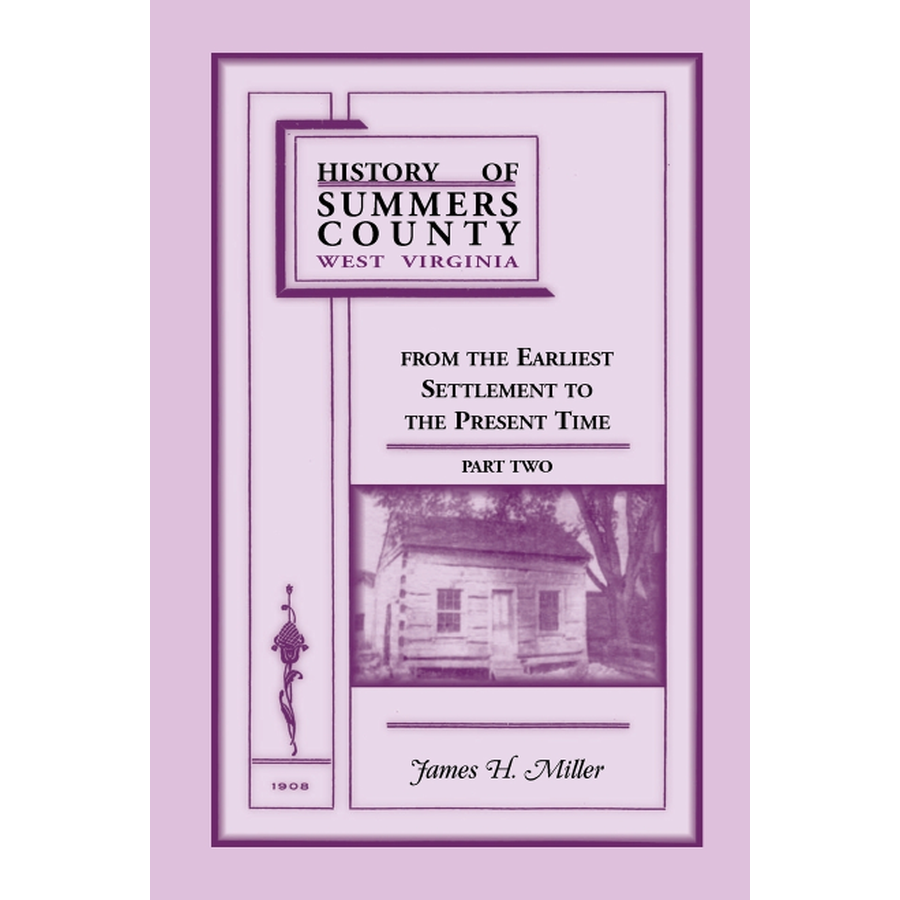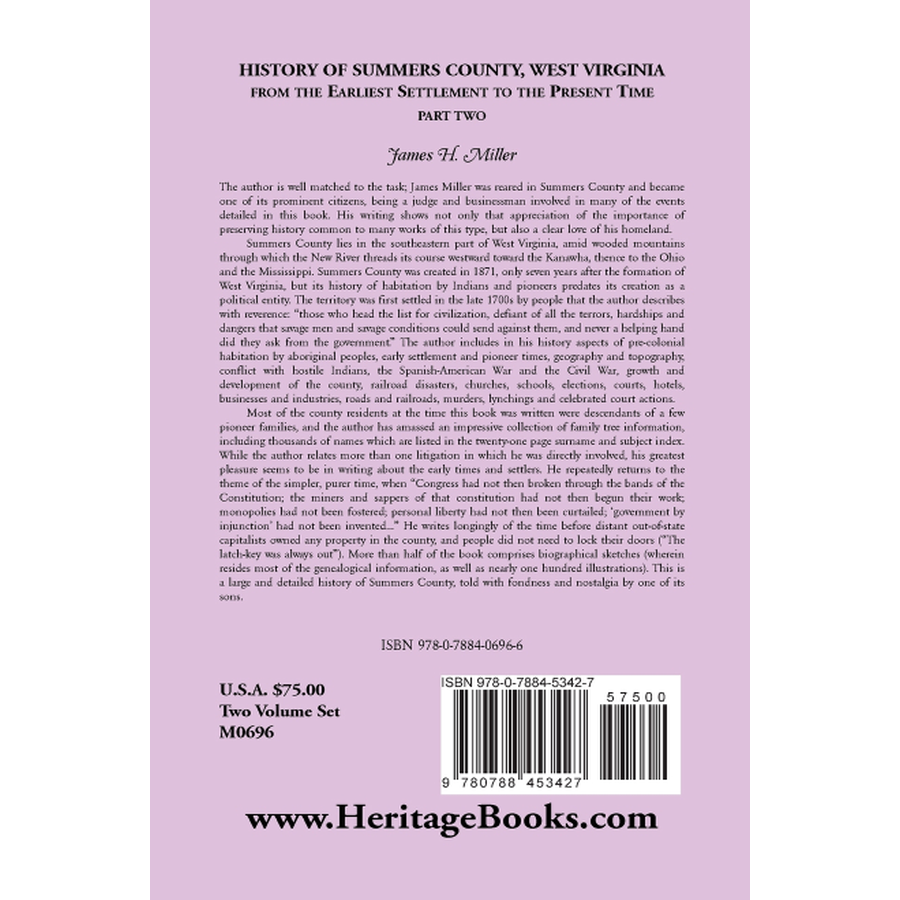History of Summers County, West Virginia From the Earliest Settlement to the Present Time [2 volumes]
Couldn't load pickup availability
The author is well matched to the task; James Miller was reared in Summers County and became one of its prominent citizens, being a judge and businessman involved in many of the events detailed in this book. His writing shows not only that appreciation of the importance of preserving history common to many works of this type, but also a clear love of his homeland. Summers County lies in the southeastern part of West Virginia, amid wooded mountains through which the New River threads its course westward toward the Kanawha, thence to the Ohio and the Mississippi.
Summers County was created in 1871, only seven years after the formation of West Virginia, but its history of habitation by Indians and pioneers predates its creation as a political entity. The territory was first settled in the late 1700s by people that the author describes with reverence: "those who head the list for civilization, defiant of all the terrors, hardships and dangers that savage men and savage conditions could send against them, and never a helping hand did they ask from the government." The author includes in his history aspects of pre-colonial habitation by aboriginal peoples, early settlement and pioneer times, geography and topography, conflict with hostile Indians, the Spanish-American War and the Civil War, growth and development of the county, railroad disasters, churches, schools, elections, courts, hotels, businesses and industries, roads and railroads, murders, lynchings and celebrated court actions.
Most of the county residents at the time this book was written were descendants of a few pioneer families, and the author has amassed an impressive collection of family tree information, including thousands of names which are listed in the twenty-one page surname and subject index. While the author relates more than one litigation in which he was directly involved, his greatest pleasure seems to be in writing about the early times and settlers. He repeatedly returns to the theme of the simpler, purer time, when "Congress had not then broken through the bands of the Constitution; the miners and sappers of that constitution had not then begun their work; monopolies had not been fostered; personal liberty had not then been curtailed; 'government by injunction' had not been invented…" He writes longingly of the time before distant out-of-state capitalists owned any property in the county, and people did not need to lock their doors ("The latch-key was always out"). More than half of the book comprises biographical sketches (wherein resides most of the genealogical information, as well as nearly one hundred illustrations). This is a large and detailed history of Summers County, told with fondness and nostalgia by one of its sons.
James H. Miller
(1908, 1997), 2012, 5.5" x 8.5", paper, index, 2 volumes, 1032 pp.
ISBN: 9780788406966
101-M0696



